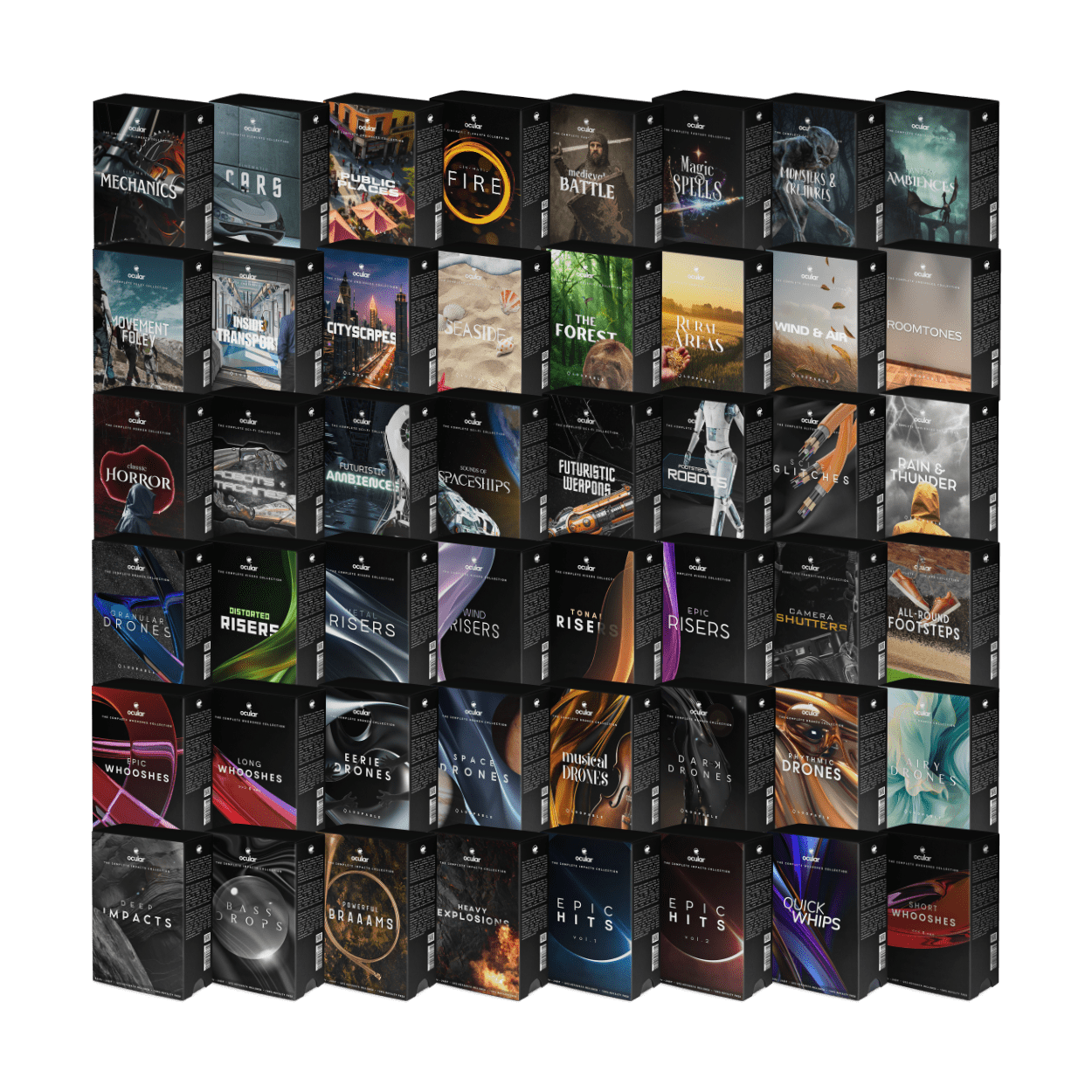If you’re a filmmaker, you know the importance of sound effects. Especially after reading our last blog post 'The value of Sound Effects (SFX) for video editors and filmmakers'. They can create dramatic tension, add realism to a scene, or can even be used to set the mood for a certain moment or emotion. Fortunately, there are a variety of ways to incorporate sound effects into your films. In this blog article, we’ll discuss how to enhance your projects as a video editor by using sound effects.
Identify and source the most effective Sound Effects for your video project
The first step to using SFX is to identify which sound effects will be most effective for your film. You may choose to source your sound effects from a library of pre-recorded sound effects, or you may choose to record them yourself. If you’re recording your own sound effects, try to capture them in a natural setting and make sure to pay attention to the details. For example, if you’re recording a gunshot sound effect, try to capture the sound of the bullet actually leaving the barrel of the gun.
Using SFX is all about timing
Once you’ve identified and sourced your sound effects, it’s important to consider how they will be used in the film. Think about the scenes in which they will be used and when they should be used. For example, if you’re using a sound effect to create tension in a scene, it should be used sparingly and at the right moments. On the other hand, if you’re using a sound effect to set the mood for a scene, it should be used continuously throughout the scene to create a consistent atmosphere.
The importance of the right mix and balance
Finally, it’s important to consider how the sound effects will be mixed in the final edit. You may choose to mix the sound effects in the same way you would mix a soundtrack, or you may choose to layer them in a way that creates a unique soundscape. If you’re unsure how to mix the sound effects, it’s best to consult with an experienced sound mixer or editor who can help you achieve the desired effect.
5 bonus tips on how to use sound effects (SFX) to enhance your projects:
- Choose the right SFX – Make sure that you choose SFX that are appropriate for the scene. If the scene is set in a forest, for example, you might want to include bird chirps, rustling leaves, and other natural sounds. If the scene takes place in a bustling city, you’ll need to choose more urban sounds like cars honking, footsteps, and doors slamming.
- Add Variety. When using SFX sound effects, it can be easy to get stuck in a rut and use the same sound effect over and over again. To make your production more interesting, try to incorporate a variety of SFX sound effects. Even if they’re subtle, mixing up the sound effects will help add texture and depth to your production.
- Layer the SFX – To create a realistic soundscape, you’ll need to layer SFX. This means combining multiple sound effects to create a more complex sound. For example, you could layer a child’s laughter with birds chirping and the sound of a gentle breeze to create a pleasant atmosphere.
- Use transitions – Transitions are important when it comes to SFX. When transitioning between two different scenes, use SFX to ease the transition. For example, you could use a short sound effect when one scene fades out and another one fades in.
- Balance the SFX – Don’t let the SFX overpower the dialogue or other sound elements. Make sure that the SFX are balanced with the other audio elements, so that they don’t drown out the other elements. By following these tips, you’ll be able to use SFX to enhance your projects and create a more immersive experience for your audience. Whether you’re creating a movie, a video game, or a podcast, SFX can be a powerful tool for adding realism and atmosphere.
Using SFX sound effects for filmmakers can be a great way to create dramatic tension, set the mood, and add realism to a scene. By following the steps outlined in this blog article, you can ensure that your sound effects are used effectively and contribute to the overall quality of your film. Good luck!















